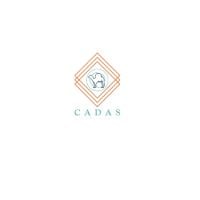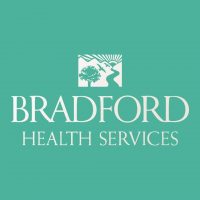Cherokee Health Systems
Drug Rehab Center in Bean Station, Tennessee
- Opioid Addiction
- Alcoholism
Cherokee Health Systems, a behavioral healthcare center established in 1958 in Bean Station, Tennessee, offers an array of personalized treatment plans that focus on prevention, treatment, and care for co-occurring substance abuse and mental health issues, while also accepting Private Health Insurance.
About Cherokee Health Systems in Tennessee
Cherokee Health Systems in Bean Station, Tennessee is a behavioral healthcare center dedicated to whole person health. They specialize in prevention, treatment, and care for those suffering from co-occurring substance abuse and mental health concerns. The facility offers a wide range of treatment levels, including aftercare support, outpatient, and intensive outpatient services, as well as specialized drug and alcohol treatment programs. Individuals can receive personalized care with individual and family therapy, as well as group therapy and trauma informed therapies. Treatment is tailored to each individual and focuses on Cognitive Behavioral Treatment (CBT), Dialectical Behavioral Therapy (DBT), and Motivational Interviewing. In addition to treatment, Cherokee Health Systems accepts Private Health Insurance and they welcome new patients.
Established in 1958, Cherokee Health Systems is a comprehensive resource for those dealing with alcoholism, opioid addiction, and mental health issues in the Bean Station, Tennessee community and beyond. With a wide range of treatments, a variety of levels of care, and the acceptance of Private Health Insurance, Cherokee Health Systems provides hope for those seeking a lasting, healthier life. Staffed with experienced professionals, this facility is committed to providing quality care and support to those in need.
Genders
Ages
Modality
Additional
Conditions and Issues Treated
Opioid + Opiate Addiction Treatment in Bean Station, TN
Opioid addiction starts when a person becomes addicted to legal or illegal opioids. The addiction can happen quickly, in just a matter of days. Opioid withdrawal can be extremely uncomfortable and lead the user to continue to use even if they want to quit. Stopping using an opioid requires medical observation. Sometimes inpatient treatment with a medically supervised detox is necessary for managing the withdrawal process while learning lasting tools for maintaining recovery. Medications may be used in some cases of opioid addiction.
Opioid addiction is one of Tennessee‘s most prominent forms of addiction. It’s treated by detoxifying the body so that the chemicals from the medications no longer impact them and by therapies to correct behavior and target the root of the problem.
Alcohol Abuse, Opioid Addiction
Levels of Care Offered
This center offers a variety of custom treatment tailored to individual recovery. Currently available are Aftercare Support, Intensive Outpatient, Outpatient, with additional therapies available as listed below.
Intensive Outpatient (IOP)
Addicts who need help with their addiction can enroll in an intensive outpatient program (IOP). But the patient won’t live there during treatment.
IOP involves patients visiting a medical office building regularly for therapy and other services while continuing to live their lives.
IOP is a step up from drug or alcohol detox, but it’s still a phase of recovery, not the end goal. Patients in need of IOP have many options for rehab and treatment.
Outpatient Program
Outpatient treatment is considered the lower intensity level of addiction treatment. It’s ideal for early phase addiction or lower intensity addictions. It may include weekly sessions instead of daily. It may include weekly sessions instead of daily. Peer group support, 12-step programs, and individual counseling may still be involved but at a lesser frequency than an intensive outpatient program. It is a good choice for someone who doesn’t need to go through a medically supervised detox and who has a supportive home environment. It requires motivation and dedication to commit to the program without constant monitoring.
Aftercare support should take place after outpatient treatment has ended. There are a few different types of aftercare support that patients can seek. These include 12 Step, Self-help groups (AA, NA), Therapeutic communities, Long-term, structured sober living arrangements, and Halfway houses (residential treatment centers).
Therapies & Programs
Individual Therapy
Individual therapy involves one-on-one sessions between the patient and therapist. It provides patients with a safe environment to openly discuss personal and sensitive issues with the therapist. They find the therapist as someone they can trust. Individual therapy aims to identify the core issues that would have led the patient to substance abuse and address them effectively. The therapist can develop patient-specific customized solutions through individual therapy, which aids speedier recovery.
Family Counseling
Family therapy is a group problem-solving that aims to improve communication and relationships between the addict, their family, and sometimes friends. The main goal of family therapy for drug addiction is to create an environment where communication can occur without judgment, hostility, or blame. The therapist is with the family as they learn to communicate differently, especially with the addict when s/he is using. The family can learn to reduce their enabling behavior or rally together and support each other during tough times.
An addict’s family can play a vital part in helping them to avoid relapse because they can spot the warning signs and help them get back on track before it becomes too much of a problem. Family therapy is one of the most effective ways to help addicts stay on the path to long-term sobriety. When a drug addict decides that they want to try and get sober, it takes the support of every person they love to succeed. It can be incredibly difficult for loved ones to watch an addict go through the pain and suffering of withdrawal, but by being there with them and supporting them, they can help to make sure that the addiction never returns.
Groups typically involve meetings with other recovering addicts who can relate to one another’s experiences. They might meet in person or online and typically focus on the process of staying sober rather than overcoming a specific addiction.
In these groups managed by Cherokee Health Systems, addicts can build a sense of community and develop strong emotional connections with others who understand what they are going through. These beneficial relationships can help addicts overcome their cravings and prevent relapse at any point during the recovery process.
In general, trauma therapy is a clinical process that helps individuals deal with mental stress often caused by traumatic events. The therapist helps the person identify, understand, and work through the problem. This is done with the help of talking about it in group or one-on-one counseling sessions. Therapists use relaxation, role-playing, art, and music to help the person open up about what is bothering them.
There are many different types of trauma therapists, such as psychiatric nurses and counselors. Not everyone is a good candidate for this type of therapy; it is generally reserved for people who have recently experienced a traumatic event and struggle to get over it. It is often done for children, teenage victims of sexual assault, and war veterans.
REBT, or Rational Emotional Behavior Therapy, is a way of replacing negative thoughts with positive ones. It teaches people how to deal effectively with their unwanted habits and emotions. Some common problems people have are procrastination, unhealthy eating, and angry outbursts. Learning how to deal with these problems in a productive manner makes them less apt to come back.
Cognitive Behavioral Treatment (CBT), Dialectical Behavioral Therapy (DBT), Family Therapy, Group Therapy, Individual Therapy, Motivational Interviewing, Trauma Therapy
Payment Options Accepted
For specific insurance or payment methods please contact us.
Is your insurance accepted?
Ask an expert, call (888) 674-0062
Additional Details
Specifics, location, and helpful extra information.
Bean Station, Tennessee 37708 Phone Number(865) 993-4300 Meta DetailsUpdated November 25, 2023
Staff Verified
Cherokee Health Systems Patient Reviews
There are no reviews yet. Be the first one to write one.
Bean Station, Tennessee Addiction Information
Tennessee joins the list of states with an above-average rate for drug and/or alcohol-induced deaths. Most of these deaths are related to opioids, such as prescription opioids. The Volunteer State ranks 2nd highest in the nation for the number of prescriptions given out. The state also ranks at the top for prescription drug-related overdoses.
Treatment in Nearby Cities
- Livingston, TN (115.7 mi.)
- Dandridge, TN (150.0 mi.)
- Cornersville, TN (85.6 mi.)
- Bishopville, TN (304.1 mi.)
- Gallatin, TN (126.0 mi.)
Centers near Cherokee Health Systems
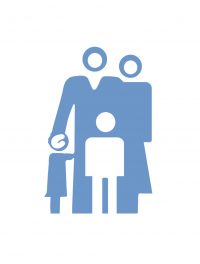
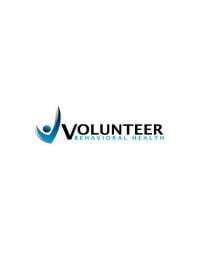

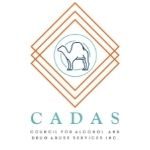
The facility name, logo and brand are the property and registered trademarks of Cherokee Health Systems, and are being used for identification and informational purposes only. Use of these names, logos and brands shall not imply endorsement. RehabNow.org is not affiliated with or sponsored by Cherokee Health Systems.



